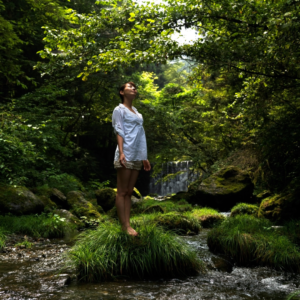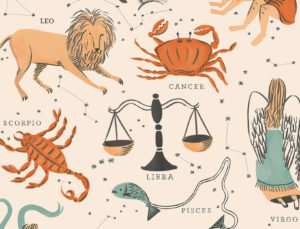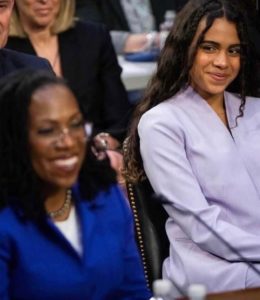Tessa Drysdale’s journey with ADHD has not only shaped her life but also ignited a passion for empowering others in the neurodiverse community. Through her work with Neurodiverse Empowerment, she helps people embrace their differences and thrive, believing that every individual, regardless of how their brain works, has the potential to achieve greatness. From managing personal challenges to building a supportive space for others, Tessa is a beacon of resilience and inspiration, showing that with the right tools and mindset, anyone can overcome obstacles and step into their power.
1. What inspired you to start Neurodiverse Empowerment?
I started neurodiverse empowerment being neurodiverse myself but also wanted to help other people becoming powered and step into their own power and thrive and not just survive in this life because I feel this world definitely isn’t built for people when you are neurodiverse and I’d like to help people embrace their differences their brain differences and know that they can smash their goals and become they want to be in this life.
2. Can you share your personal journey with ADHD and how it has shaped your work?
My journey with diagnosed and shaped me to become a thinker of person through a lot that I’ve gone through ups and downs have made me realise how lucky I am now to be able to in the position that I’m in currently. I’d like to run retreats and some free workshops in the future as I feel the people that have come across my path have shaped me as you shaped you and I’ve been very lucky to meet people at the right time, I guess because I’ve been open to things and have that ADHD curiosity magic can happen even as an adult.
3. How has stigma affected your experience with ADHD and your work in empowering others?
Affected my work because there’s a lot more awareness now in Australia the UK and America
4. What do you think are the most significant gaps in support for women diagnosed with ADHD after 40?
Significant gaps diagnosed with ADHD I would say would be lack of understanding hormones impact women and ADHD but also lack of funding lack of research lack of support in having sure the waitlist for women to see specialists and have access to affordable medication and psychiatric help.
5. How do you address and combat the stigma associated with ADHD in your work?
There’s not really much stigma with ADHD in my work.
6. Can you describe a moment when you felt particularly challenged or discouraged in your journey?
Too many challenges and discouraged my journey to mention here ha ha ha ha but I think I had to think of something. It would be when I was diagnosed. ADHD wasn’t a thing and woman anyway it was more in Little boys been diagnosed with ADHD so no one really knew what to do with me. haha
7. What strategies or practices have you found helpful in managing ADHD and maintaining mental health?
Mindfulness has been a key element of grounding myself in order to make sure that I’m able to manage my own mental health and ADHD using fidget fidget toys has also helped me a lot in managing my ADHD. It also helps my client who I coach for ADHD and autism, having these sorts of tools and places as well.
8. How do you balance your personal experiences with ADHD with your role in supporting others?
I think I’ve mashed your divine a line between Personal and professional when I was a therapist many years ago and it’s a second nation to me so I’ve been able to balance my time and experience. I make sure that I have time on the weekend. I’m home on my ADHD.
9. What has been the most rewarding aspect of running Neurodiverse Empowerment?
The most rewarding part would be in relation to seeing clients bribe and not survive and succeed especially clients that The diagnosed later on in life woman who just feel they going mad when actually not
10. How do you stay motivated and focused despite the challenges you face?
I have a dog and she keeps me motivating and focused my exercise quite a bit so that I can get through any challenges that my face exercise and moving is really good for ADHD as well. Encourage clients to do this.
11. Can you share any success stories or positive feedback you’ve received from the women you’ve helped?
There’s lots of positive feedback and success stories on my website. I really encourage people to visit my website and learn a bit more about my body doubling and services and as I said earlier App will be out soon on android Apple Store.
12. What advice would you give to other women who are diagnosed with ADHD later in life and are struggling to find support?
The woman who diagnosed with ADHD later in life would be to never stop believing that you can achieve whatever you want to achieve and Google and support groups are wonderful through ADHD W.A. in Australia. Also there are American organisations who also around to support people with ADHD such as AADCA – documentation and magazines and awareness nowadays so I would recommend definitely going on Google find supports and letting your family and friends support you and making new friends who have ADHD is also encouraging because it makes you feel less alone
13. How do you envision the future of support for neurodiverse individuals, particularly women, evolving?
I think more awareness has been made about woman being diagnosed later in life so I think it’s gonna evolve in that. Hopefully will be more funding for woman to access supports and medication around the world and less medication supply shortages and I also think employers and other people would make more accommodations for women maybe having longer time off, less full on work hours and better pay.
14. Are there any resources or tools you recommend for women with ADHD that you have found particularly helpful?
Resources which I have found very helpful and I’d recommend would be a timer (egg timer, pomodoro timer), helping people be more aware of their time blindness. Hopefully my newly ADHD app which people can subscribe to my newsletter website and post about when it will be released next month via Apple Store. Also, I find body doubling and corking environments quite useful as well which I run through lines a week because we’ve got that whole thing of with ADHD. We seem to get things done once someone else is doing the thing as well if House and your best friend put music on and listen to music and they clean the house as well much easier? There is honestly a heap of resources out there too many to list but people are welcome to email me and I’m happy to be in touch and make some suggestions.
IG: @neurodiverse_empowerment_
@thankyouthursa
YT: https://youtube.com/@NeurodiverseEmpowerment
LinkedIn: https://www.linkedin.com/in/neurodiverseempowerment
FB: https://www.facebook.com/profile.php?id=61555163252218






